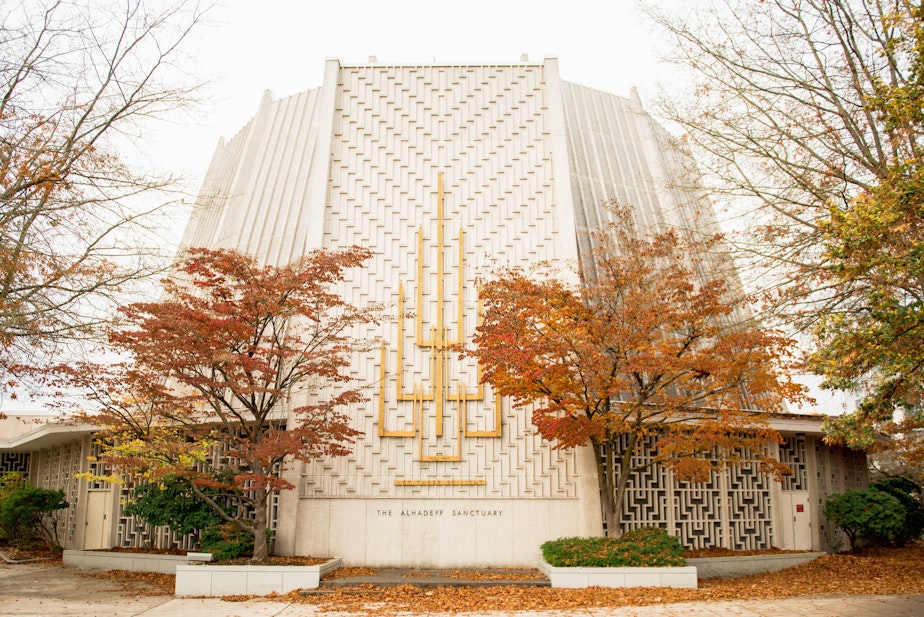Reflections on the deeper meaning of Hanukkah this year

The Jewish festival of Hanukkah, which some call the Festival of Lights, begins tonight at a particularly fraught time around the world. To mark the holiday, KUOW’s Kim Malcolm reached out to Rabbi Daniel Weiner of Temple De Hirsch Sinai, which has communities in Seattle and Bellevue.
This interview has been edited for clarity.
Kim Malcolm: For someone who isn't that familiar, what is Hanukkah about?
Rabbi Weiner: Hanukkah is, as you mentioned, both the Festival of Lights, in that it occurs during the darkest time of the year and it provides not only physical light but also metaphysical and figurative light at a time of difficulty and challenge and sometimes hopelessness in the winter, particularly in the high latitudes of Seattle.
But Hanukkah also is a festival of religious freedom. It reminds us of the historic battle between the Maccabees, a Jewish military group, and the Syrian Greeks who denied them their right and their ability to practice their faith and tried to subvert that faith. The Maccabees were able to defeat the Greeks militarily, and we dedicated the main temple, the central source of worship, and the National Shrine of the Jewish people.
And the miracle of Hanukkah, the story that's attached to that, is that when the Maccabees went into the temple to re-consecrate it, they only found enough oil for one night's lighting, and that oil lasted for eight days instead. It's a way for later generations of rabbis to inject God into the story as an affirmation of the Maccabees' bravery and heroism in fighting for their religious rights and religious freedom.
Sponsored
I know the light in the darkness is such a powerful symbol for many people. What is your Hanukkah message this year?
Obviously, the Hanukkah message this year has taken on a very different, and perhaps even a deeper resonance with what's going on both in the Middle East and the blowback and the implications for Jews around the world, and in the United States, with an unprecedented rise in antisemitic statements and acts. So I think that notion of a concerting of pride, and a willingness to stand up perhaps in less comfortable times than previously for one's religious rights and one's religious freedom actually means, in some ways, a lot more this year.
I'm wondering what you're hearing and observing from your congregation this year as you head into this holiday. What are people telling you?
I think it's a mix of both deep concern for our brothers and sisters in the nation of Israel, but also concern for the rude awakening that many of us have been experiencing over the last two months. The ferocity and the velocity of the ascendance of antisemitism over the last couple of months, built on what was already a high level previous to that, has really taken many of us by surprise, and I think has impacted our sense of complacency.
I'm hearing from folks both a deep sense of concern and anxiety, but also from many a doubling down on our pride in who we are, our sense of coming together as a community, and our passion to deny those who would seek to diminish our faith and our opportunities and comfort in doing so, to deny them that right to intimidate us and to keep us from our faith in our community.
Sponsored
Temple de Hirsch Sinai in Seattle will host a Hanukkah-themed Soul Shabbat service and candle lighting on Friday night, December 8. The public is welcome.
Listen to the interview by clicking the play button above.


